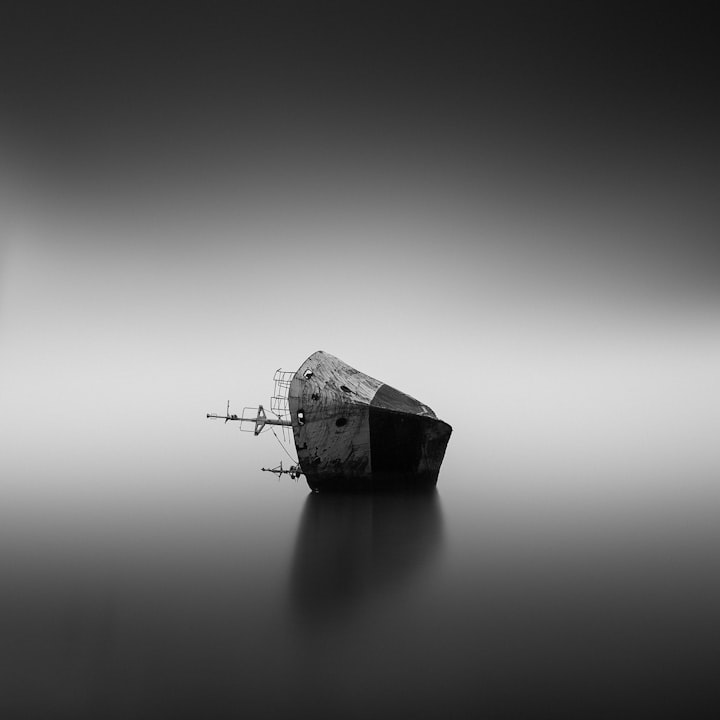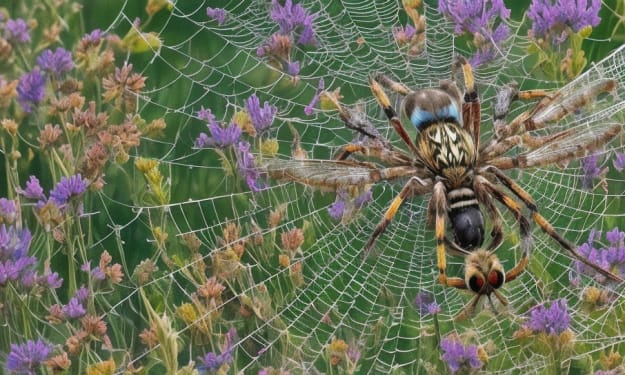
Frank’s proposal was not entirely unexpected but it was poorly timed. We had breakfasted together at the Cadena Cafe before RMS Titanic’s departure from Southampton, and it was the last time we would have together for six months for I was to journey to New York. The consequences that distance can have on a heart are often unpredictable, but even before we parted it seemed that Frank was feeling the effects - his gaze lingered through the steam from our eggs and coffee; his jokes were more frequent and his compliments especially earnest. I rather think he intended it to be romantic, catching my hands as I wished him farewell in the bustling street and saying: “Before you leave, Chrissy...might you do me the honour of promising your hand in marriage? For when you return, I should very much like to make you my wife.”
It quite took me aback. There was no question that it was an excellent match. Frank was a gentleman and a tycoon of industry; he had many useful connections and was an eligible bachelor indeed. Yet, I was bound for New York that very day. Surely, it was no good to be promised to one another in the face of such a separation? I cared for Frank and I told him so; and promised him an answer upon my return. It seemed to him that my response in six months' time must surely be yes. He kissed my fingers gently.
When I relayed the events at the cafe to Lena, she laughed gaily and declared, “Let poor Frank believe he has tied you down, darling, the very afternoon I whisk you away to the Americas!” She was enlivened, buoyed by the briskness of the breeze that swept our skirts and snatched at the brim of her hat that she held, laughing, to her head.
There were throngs of people on the dock, gathered to admire the magnificence of the ship on which we were embarking. It was entirely impressive; as crisp and neat as a fresh packet of cigarettes. The sleek ebony hull, gleaming red where it met the water, stretched on and on; above, the cabins as white as new paper. The four black-topped coppery steam funnels towered straight against the sky, impossibly high, glinting in the afternoon sun. Stood in the leviathan's shadow, it almost seemed as though there could not possibly be room for anything else in Southampton.
We walked together arm-in-arm along the gangway. Lena’s dismissal of Frank’s proposal had promptly turned to admonition: I simply must not leave her employ to become a wife and mother because it would be a dreadful bore. She said this cradling the own gentle swell of her belly and her husband, on our heels, gave a light-hearted scolding for her selfish ways.
“As much as Miss Christina enjoys her position as your secretary, dearest, preventing her marital bliss so you may retain use of her is reprehensible. I hardly remember why I ever thought you a kind and gentle creature.”
“Oh, you think me the kindest and gentlest creature of them all,” Lena said, with the pearly, glowing look of a young wife utterly confident in her husband’s affections.
“There is a freshness to the wind, is there not?” I asked, feeling the bite of it through my woollen coat. “It has a touch of winter in it still.”
“I hope you can bear it a little longer, Chrissy. All these people here to wave us off - why, we must wave back from the deck as she sets off.”
Lena's excitement was contagious, ignited by the spice of adventure in the air. It mingled with the pleasant violet aroma of her perfume, undercut by the deeper, older stench of brine. In my hand was clutched a first-class ticket, bought and paid for by my companions. The Gordons were wealthy; Lena's origins as a New York socialite meant she had always lived a comfortable life, and her marriage to Mr Jacob Gordon of London had only served to make it a great deal more so. When it was agreed that they would return together to her childhood home in Philadelphia for the birth of their child, it was no question at all that I was to go with them.
What on Earth would I do without you alongside me? Lena had asked, aghast, when I had attempted to discuss the practicalities of managing her business affairs in London during her absence. That I could not afford my own ticket was not the slightest issue; it simply appeared, as if magicked by a wink from Mr Gordon and a benevolent smile from Lena.
It was no kindness to me, that ticket. Of course, I followed her. I followed her away from home and away from Frank without ever questioning it, a leaf caught in the current, never conscious of what that decision would cost. How ill-fated it all seems now, as the Carpathia carves its way to New York through unforgiving water and I watch the waves churn in our wake.
*
I had thought the ocean empty the night before with Lena. We had retired early but then sea sickness had reared its ugly head. Mr Gordon was gaming with friends in the bar and so Lena knocked gently upon my door. She invited me to take a turn about the deck so that the fresh air could do her some good. It was rather late, the sun long since set and most passengers abed, but the Titanic had not yet struck the berg.
We stepped out under the stars together, wrapped deeply in coats to protect us from the chill touch of the endless Atlantic night. The ocean was smooth and sleek in the light from the lamps, even as ice crystals in the air formed rainbows around the light. There was no moon but the sky was thickly freckled with glimmering stars. Looking up at them had made me dizzy – it was like peering into the depths of a well, but in reverse.
Somewhere out there, the horizon existed - we drifted on the line caught between two oblivions. As I held Lena’s arm and gazed out with her into nothing, and she took gulping breaths, wisps of her hair stirred by a breeze and the movement of the ship - it almost seemed that such a line might not exist; that, unbeknownst to us, the sky and the water had melded into one eternity.
The Titanic hummed beneath our feet, an immortal island of steel, but suddenly it seemed we might as well be balanced on a feather. What was steel to the endless starlit void above and the fathomless abyss below? I said as much to Lena, remarking at the eerie weightlessness invoked by such thoughts.
"You shall make me dizzier still!" Lena said, laughing. She shushed me with her finger against my lips and then her mouth on mine, and I had squirmed away from her, scalded by her incautiousness.
“For heaven’s sake, Lena! What if we’re seen?”
She only laughed. “You just said it yourself, my darling, there is nobody else in all the world.” Repentant, she took my hand in both of hers and we fell into a companionable quiet. Perhaps I should have let it be, but instead I asked, "And what if I am to marry Frank?"
She had not seemed to care at all about the weight of that decision. I had brought my annoyance at her reaction to the news all the way from Southampton, for there had been no other time to bring it up. Lena’s husband or their friends and acquaintances seemed never more than an arm’s length away, and so only there, on the freezing deck in the witching hours, had we remained both uninterrupted and unobserved.
She rolled her eyes, shrugging a shoulder sleek with ermine fur. "What of it? I married Henry and here we stand."
"We are afforded this luxury by the excuse of my employment; if I am to be a wife and mother, what use would you have of me then?”
“I am sure I can think of one.”
“Please take this seriously.”
“I do, Chris, I do!” She hung on my arm, the lamplight reflecting on the burnished bronze of her hair. The tip of her nose was rosy pink with cold. “I am at a loss for what else to say! If you wish to remain my secretary forever, then of course you may!”
“I shall be an interloper within your family then, is that it? With no opportunity to make my own?”
Her voice was gentle and sad when she said, “A family or me. It can be one or the other, Chris, but not both. You know that."
I scowled. “Of course I know that.”
“Then kindly do not take it out on me; for the fault does not lie with either of us, does it?" She hesitated, then said, very gently. "You ought to marry Frank. It would break my heart if you were to leave; but I cannot give you everything you want."
She is right, obviously, but that does not solve my unhappiness. There is no solution that suits us both and Lena has always been able to make her peace with that far better than I. Would that there was only us in all the world with no horizon - but there would always be a line we could not cross.
The silence that fell was as boundless and desolate as any void. I almost did not dare to breach it; it was Lena who stepped away from it first. Then she halted, held out her hand to me, her expression soft. “Come in with me.” But the thought of stepping back into the confines of my cabin was unbearable just then.
“I will linger a little longer," I said, and Lena drifted indoors alone.
When dawn arrived, the ship was gone. When the sun rose and opened up the skies to ethereal blue and delicate pink, it had filigreed the clouds in gold. It was only by that magnificent light that I realized that the waters were not empty after all, but cluttered with chunks and plains and mountains of ice.
*
He said he would come upon a later boat but he is not here. Lena’s countenance is changed. I have never seen her look so; she is drained of all colour as though made from ice herself, as if the bigger part of her has joined her husband, wherever he is now. She has not spoken a word since the end of the ship had risen skyward in the last moments before it sank, and the lights flickered out.
I cannot explain even to myself why I refuse to stay inside and be properly warm, even as I shiver within the folds of the blanket given to me by the crewmen of the Carpathia. I hold an orange. It is an utterly incongruous thing, but I am still in possession of it. All while others have lost fortunes, and while still yet more have lost friends and family, their lives lost to the ocean bottom…of all the things to make it safely off of the Titanic, I have ensured that this orange was one of them.
They were one of the luxuries tucked into the cabins in first class and the closest thing to an emergency ration that came to hand. The fruit is in perfect shape, not even bruised, the rind intact and vivid. That it has survived an unsinkable ship, the finest steam liner in the world, is beyond the pale. It could at least have the decency to rot.
It was Mr Gordon who had pressed it into my hands after helping his wife into the lifeboat. As she had taken her place beside me, he had pulled it from the pocket of his coat and held it out to me. For a moment, our eyes had met and there was the shape of something in them that I did not recognise. Then he smiled kindly, and said, "Just in case."
She can barely bring herself to look at me. I do not blame her. There are shadows in both our gazes; in hers, grief for her husband and the father he would have been, shock that he is gone, relief that I am not. In mine there is simply guilt.
As a girl, if I grew restless at dinner, I might wet my fingertip in my water glass and run it along the rim until the vibrations made the glass sing. It is known as a glass harp, or sometimes a ghost fiddle. I was mesmerised by the way whispers of sound would build to clear, ringing notes that filled the air, disturbing all the pockets of silence until none remained; there was only the note, sonorous and pure.
When silence settles and is renewed, it is always heavier than before. The silence that rose from the water when they were all gone was like a single note played upon a ghost fiddle. It found us in that lifeboat and lingers, even now, filling the space between Lena and I; I sat beside her in the boat, her hands wrapped tightly in mine and said nothing. When dawn broke and the sea was empty but for ice, our silence swelled. Aboard the Carpathia, it is an unwieldy thing and deafening. Their music is the silence now, and we hear it in all the spaces they have left empty.
How can we bring ourselves to break it? Lena needs me to tell her that it will all be all right, but I cannot. I want to tell her that I am sorry, but my own voice is lost. The words simply do not come.
*
We are close to New York when she finds me on the deck. She brings a cup of coffee, bitter black and steaming. She has been crying; her face is puffy and her eyes tinged with red, but they are clear; they shine as she stands beside me and stares out at the ocean. She takes deep breaths as if sea sick; she holds out the mug to me.
"Come in and be warm," she says, and her voice is rough, but it is her voice. It is almost a shock to hear it, abruptly and unexpected, like a glass shattering. I take a sip of the coffee; it's like syrup, choking hot.
More is gone than we have yet accounted for; our lives as we knew them have also been lost to us. I remember the person I was but she is another thing left behind. The Carpathia is full of such souls; we go on to New York, but we have not truly been saved. We are ghosts, too.
Is it ungrateful to think so? That we were saved but also not saved, when so many others were not saved at all?
These things float between Lena and I, unsaid, but reflected in one another as though we are mirrored. Now we are each ocean and sky, and we have lost the horizon between us. Perhaps it was easiest to take a husband I could pretend to want and forget; but when all else is gone, what else is there but one another?
Before we reach New York, I make my decision.
I will not marry Frank. The baby will be born in August in America, and there I will remain, with her.
I whisper this to her; she turns to me, almost smiles. "I see it now," she says quietly, and she is looking out over the ocean.
She takes the mug from me, and I go back to turning the orange over and over in my hands. Her gaze drops to it. The scent of it - the tart and honeyed tang of citrus - has become faintly nauseating and I cannot stand the thing, but it has occurred to me that the kindly man who pressed it into my hands is dead now, and so it seems for whatever inexplicable reason that the least I can do is keep holding it. Yet I do not protest as Lena gently takes it from me and drops it overboard. The flash of bright peel is swallowed by brackish green waves.
Perhaps the ocean has a taste for oranges, now. I suspect that we have lost ours forever. It seems such a sinful thing to be relieved that it is gone, even as my hands feel empty - then Lena slides her palms against mine, and they are not.
About the Creator
EJ Ferguson
EJ Ferguson is a UK-based writer and occasional poet. She holds a BA in Creative Writing from University of South Wales, and is perpetually working on a debut novel. She is often found buried beneath soft blankets and two enormous cats.
Reader insights
Outstanding
Excellent work. Looking forward to reading more!
Top insights
Compelling and original writing
Creative use of language & vocab
Easy to read and follow
Well-structured & engaging content
Excellent storytelling
Original narrative & well developed characters
Heartfelt and relatable
The story invoked strong personal emotions
On-point and relevant
Writing reflected the title & theme






Comments (1)
YES. I love this. The way the imagery builds toward the end is phenomenal, and "perhaps the ocean has a taste for oranges now," and "at least have the decency to rot" are downright poetic.